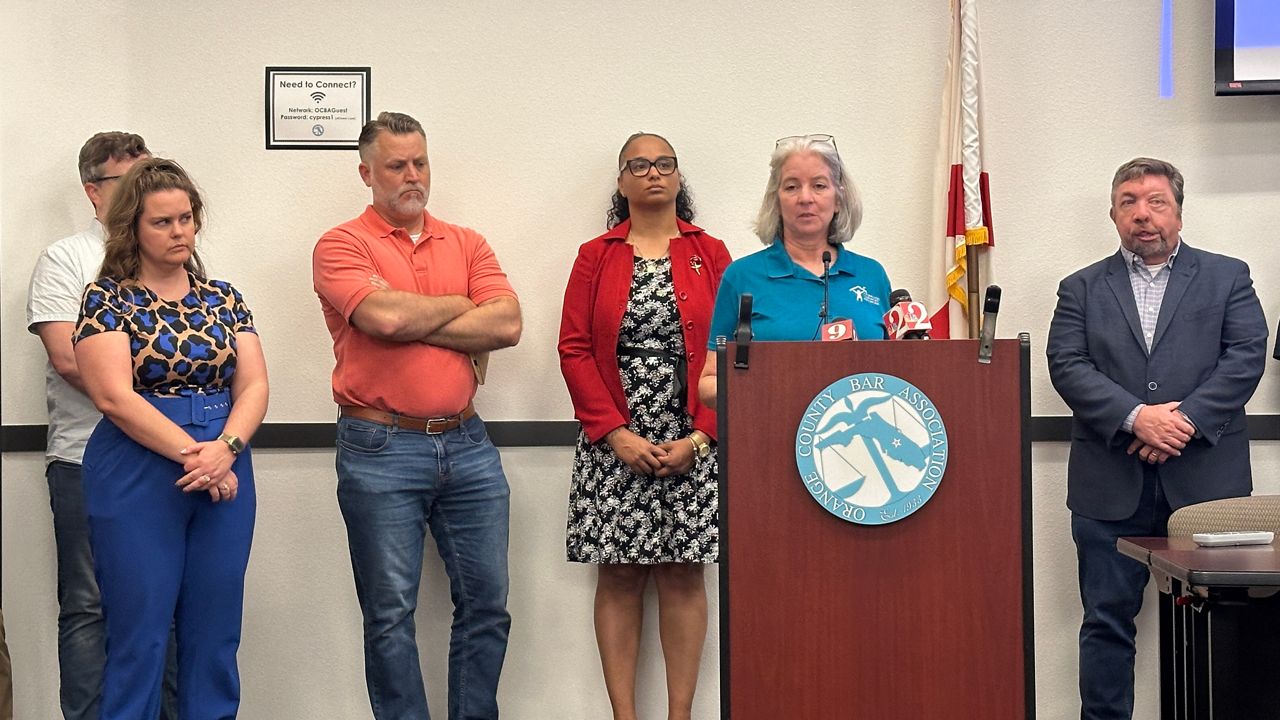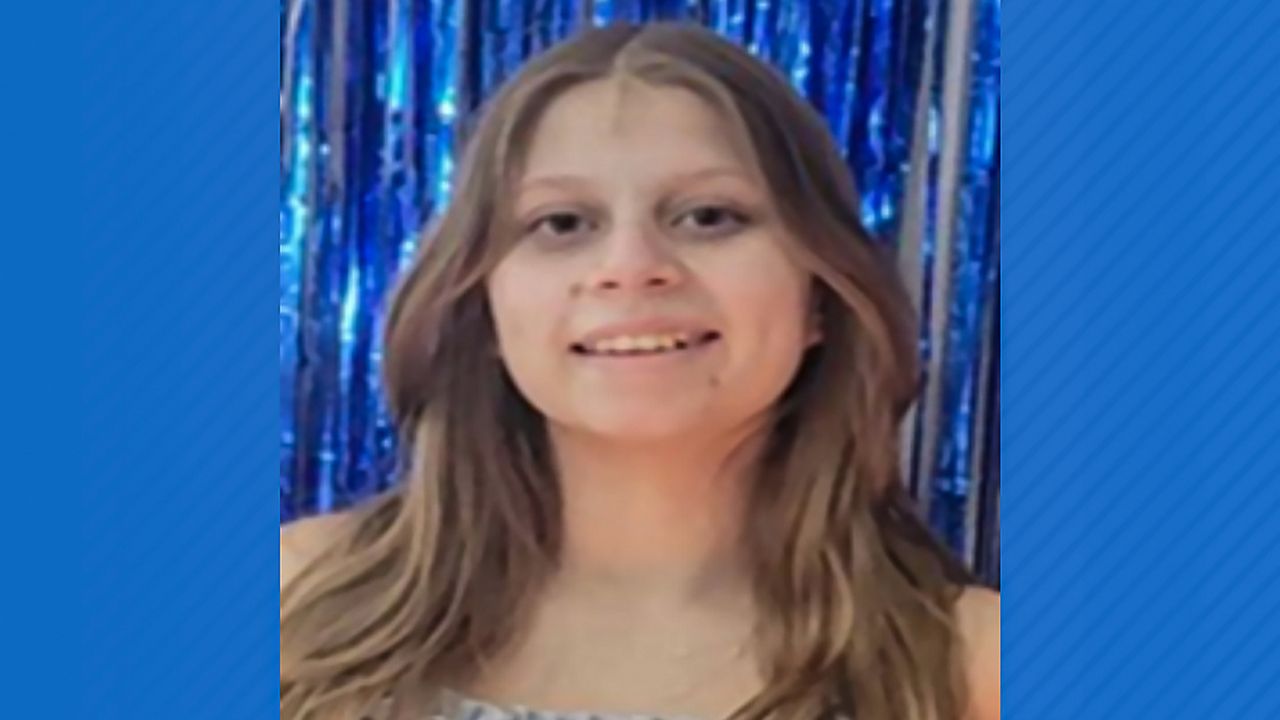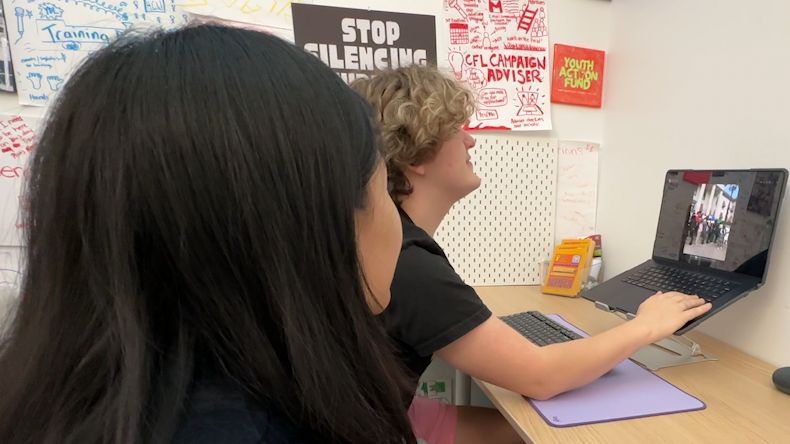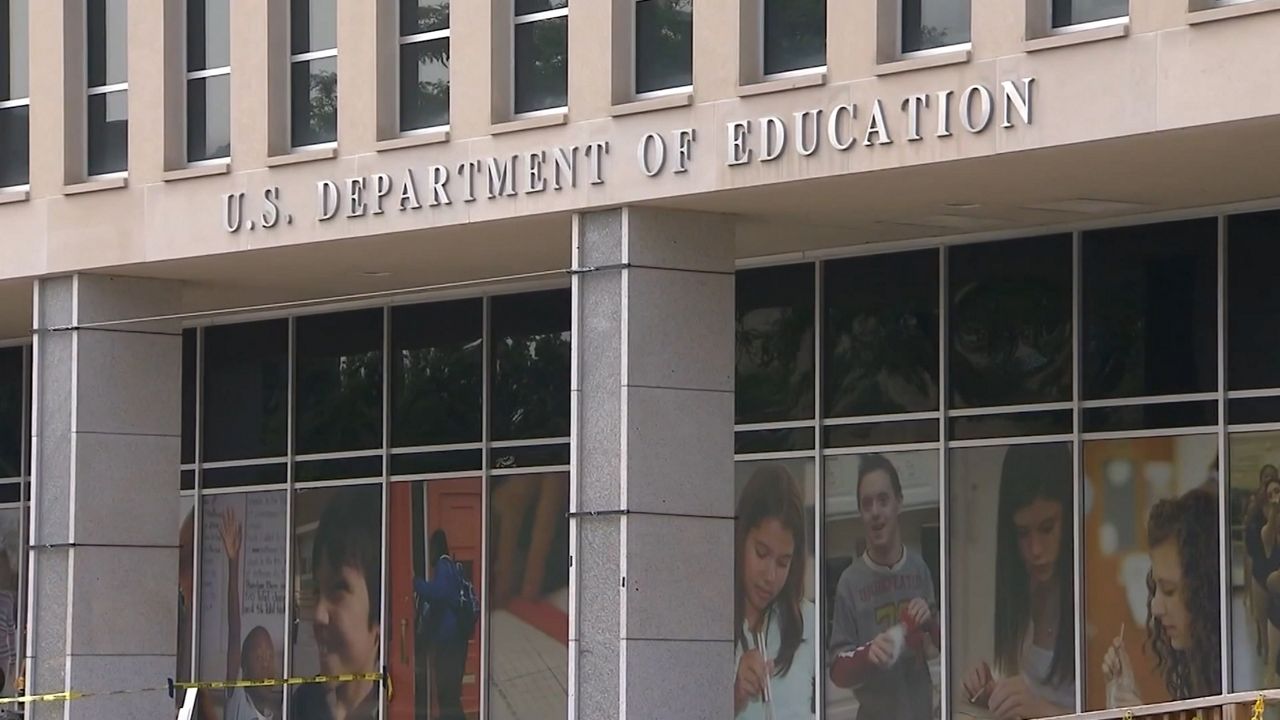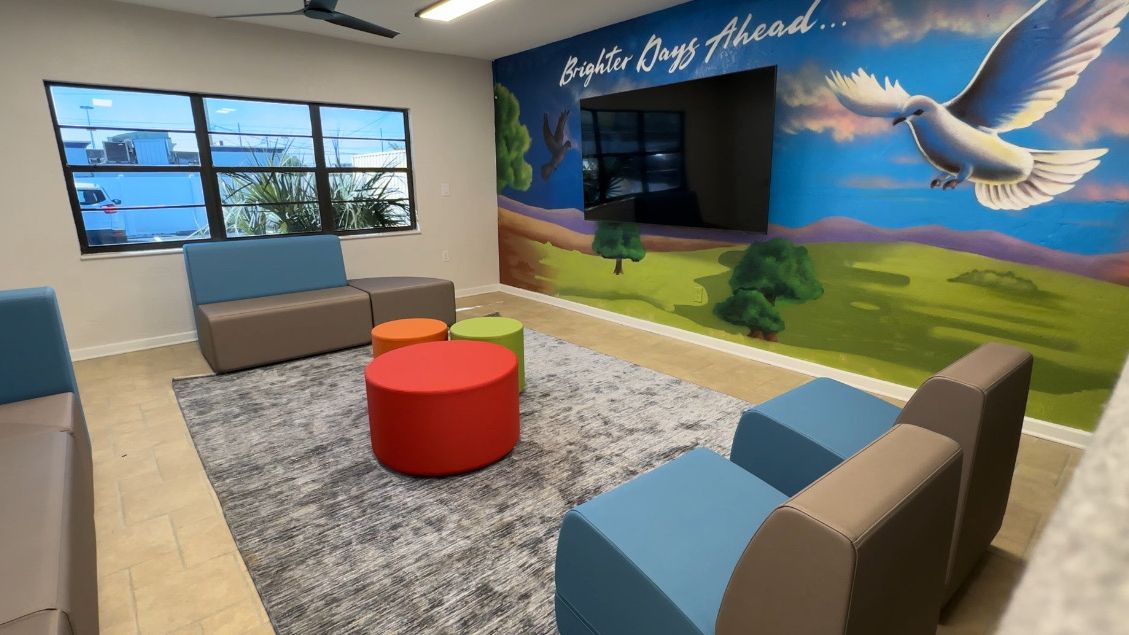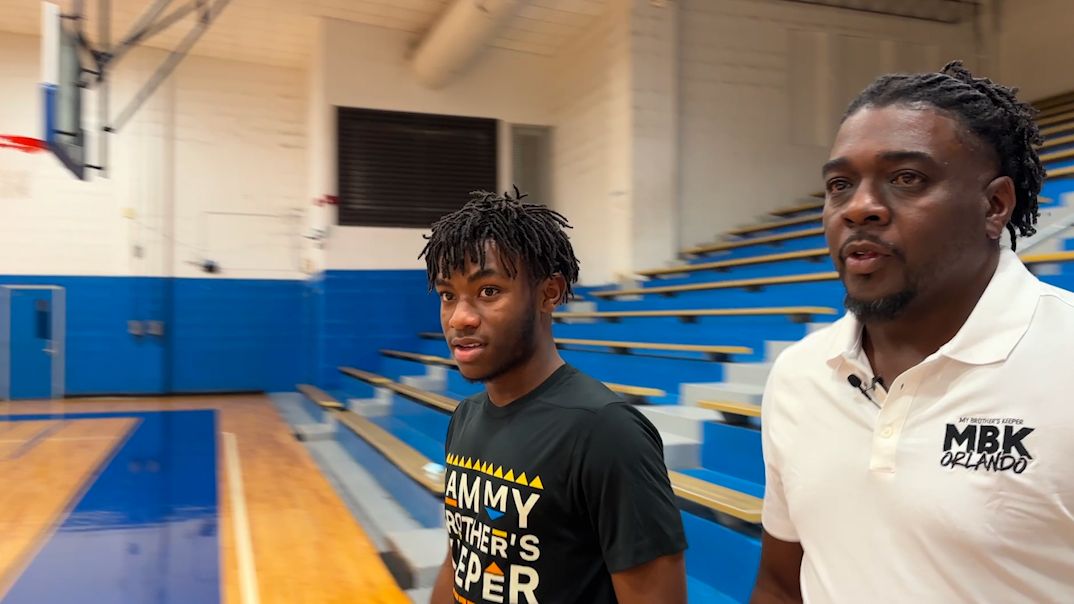ORLANDO, Fla. — As part of National Human Trafficking Prevention Month, organizations across Central Florida area are bringing attention on how to spot human trafficking, identify the crime and get support.
Experts say human trafficking is a billion dollar industry where people are bought, sold and traded for sex and for labor.
Olivia Littleton, a survivor that is now a supervisor with an anti-trafficking team at One More Child, was a 19-year-old athlete and volleyball player at Georgetown when she experienced being trafficked.
“I had a pretty normal experience until I met a man who was 15 years older than me on a dating app,” she said.
Scrolling through pictures of that time of her life, Littleton reflects on the relationship that evolved into grooming.
“It led to the point where he would solicit photos from me that were explicit and videos,” she said. “Then he would use those against me to say, well now, if you don’t do this next thing that I’m asking you for, I’ll send these photos and videos to your coach and to your family and to your friends.”
She says some time after, her trafficker was arrested for child pornography charges on a different case.
Littleton says, like a lot survivors and victims of human trafficking, she didn’t realize that’s what was happening at the time.
She says most of the time, it’s not physical methods that traffickers use to control victims, it’s the psychological hold.
“This is not what I thought it was: this is someone that is a trafficker and is an abuser,” she said. “I was caught up in that trauma bond and manipulation cycle with him that I didn’t notice.”
Red flags can include someone that has fearful behaviors in a relationship, a controlling partner, or signs of physical abuse.
“(Victims) are not the ones answering questions themselves: if you’re in a medical setting, if it’s someone that can’t answer questions on why they have injuries on their body or maybe they have bruises on different stages of healing,” said Littleton.
She says human trafficking has two pieces to it: sex trafficking and labor trafficking.
“Human trafficking is anytime the use of force, fraud and coercion is used to compel an individual to perform either a commercial sex act or forced labor against their will in exchange for something of monetary value,” said Littleton.
Pouring red sand on the pavement at Barber Park, Littleton says the Red Sand Project is a visual representation of advocates filling in the cracks of those falling victim to human trafficking.
“My representation of me falling through the cracks was nobody saw the red flags, I didn’t even see the red flags,” she said.
Littleton calls herself a lived experience expert.
She oversees a team of advocates, fighting for legislation that protects survivors and supports survivors with healing.
“If someone is seeing this and seeing some similarities in their experience to my story, there’s support out there for them,” she said.
Florida ranks number three in calls for the National Human Trafficking Hotline.
“While we have a lot of human trafficking activity here, on the other side, it also means people are seeing it and reporting it,” she said.
If there’s an immediate safety concern about someone being trafficked, call 911.
To report the crime, contact the National Human Trafficking Hotline at (887) 373-7888.
The locations for the next Red Sand Project events include St. Cloud, Seminole County Sheriff’s Office, UCF and the Kissimmee Civic Center.






